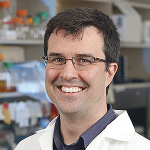Individuals with rare disease typically experience many years without a molecular diagnosis and, as a result, have ongoing specialist consultations, repeat trips to the emergency department, and often unnecessary invasive and non-invasive investigations. There is a clear clinical need as a diagnosis is critical for the individual to have appropriate management, surveillance and counselling. Our ability to diagnose these rare conditions is greatly facilitated by the discovery of novel genes. The Care4Rare Consortium is a national study headed by Drs Kym Boycott and Alex MacKenzie and it aims to diagnose individuals with rare disease, and to elucidate the underlying disease mechanism(s). However, there are challenges in this process of gene discovery today that includes genetic heterogeneity, atypical presentations, ultra-rarity, and the presence of two or more molecular diagnoses. Pleiotropy can also play a confounding role. In order to overcome these obstacles the Care4Rare Consortium has employed the Matchmaker exchange. This platform permits the efficient identification of other individuals with the same candidate gene and similar presenting phenotype. In addition, other methods to validate novel disease gene candidates include the RDMM (Rare Disease Models and Mechanisms) network. Transcriptomic and genomic approaches also provide tools for gene discovery. Lastly, international collaboration among researchers, physicians and patient groups will be critical in the effort to catalog all the rare phenotypes and the respective disease genes and to translate this to improved patient care.

Only the live session qualifies for CEUs but when possible, we host the recordings on our website and NSGC recommends participants to use their personal email instead of work email addresses to ensure they receive their CEU certificates.

Ambry Genetics is approved as a provider for continuing education program by NSGC and ASCLS P.A.C.E ® Program.

